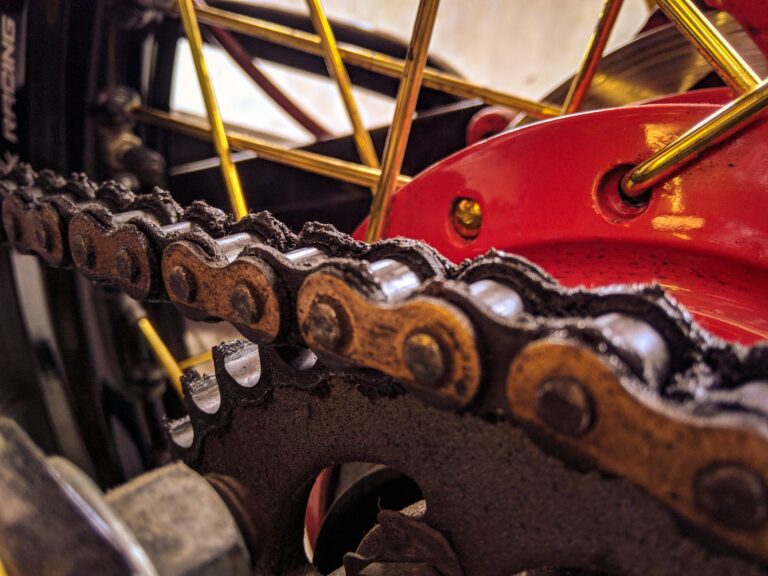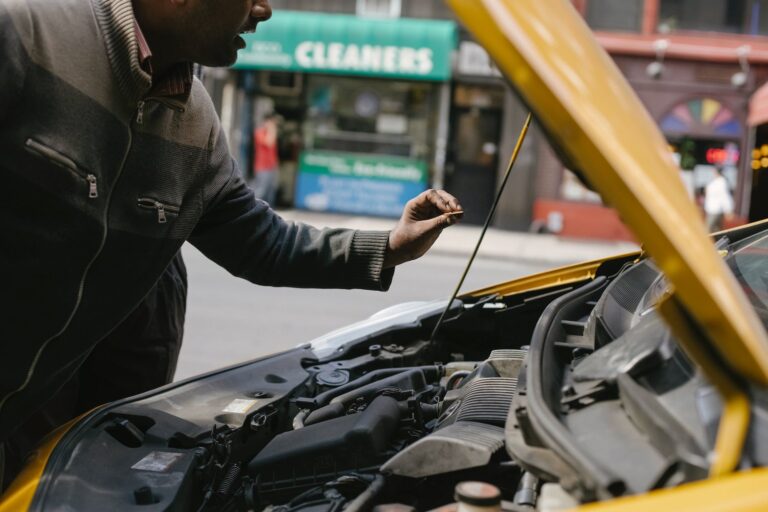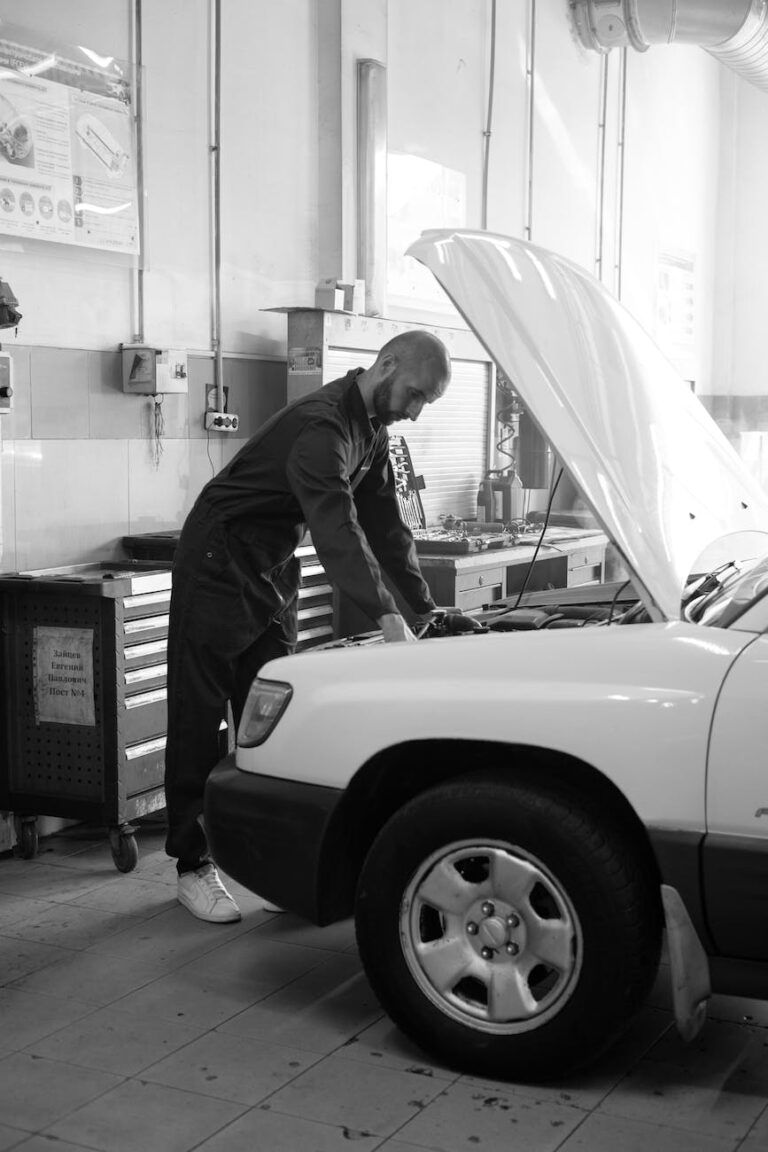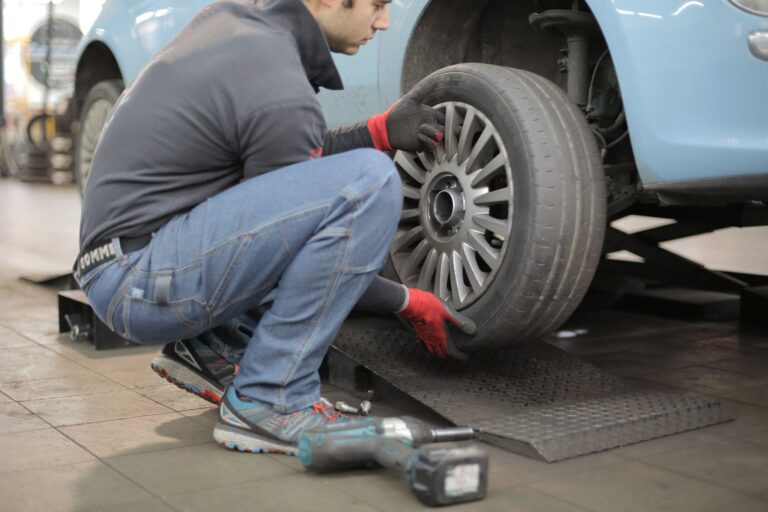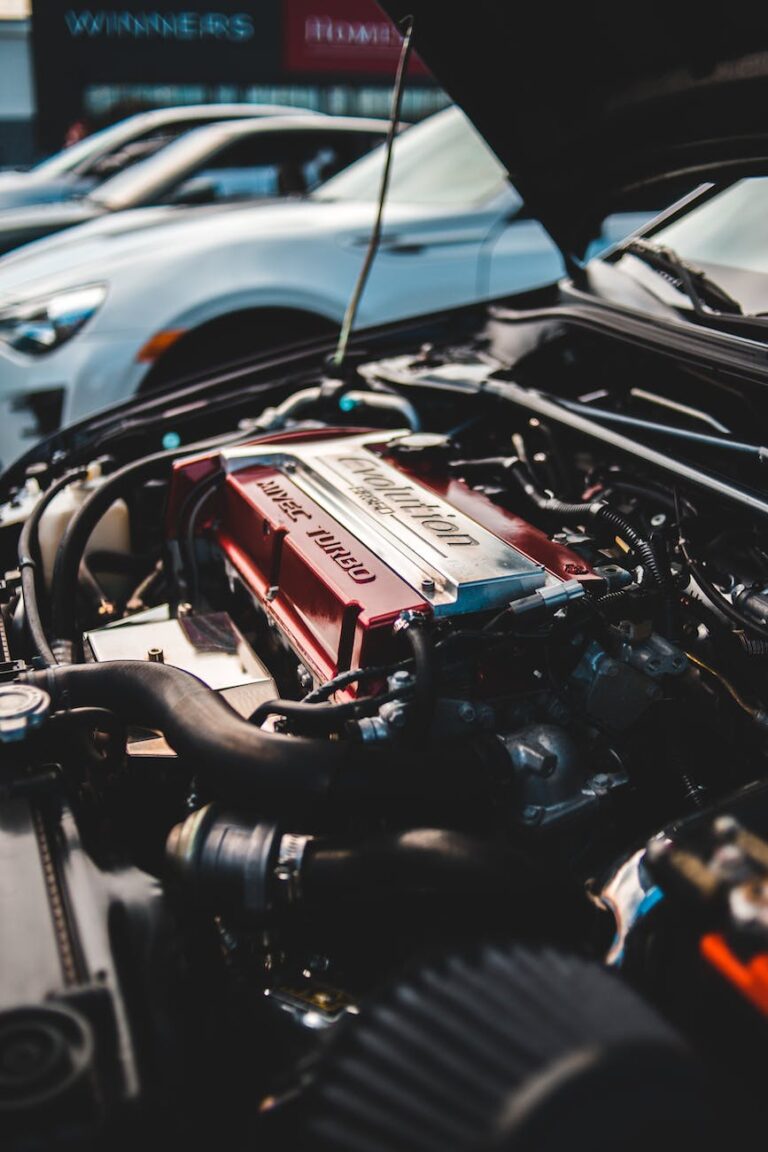Brake Service Basics
To ensure the safety and optimal performance of your vehicle, brake maintenance is of utmost importance. Understanding the basics of brake service and the components of the braking system can help you make informed decisions when it comes to maintaining and repairing your brakes.
Importance of Brake Maintenance
Regular brake maintenance is crucial for the smooth and safe operation of your vehicle. The braking system plays a vital role in stopping your vehicle effectively, and any issues with the brakes can compromise your safety on the road. By prioritizing brake maintenance, you can detect and address potential problems before they escalate, reducing the risk of brake failure and costly repairs in the long run.
Brake maintenance typically involves various tasks such as brake pad replacement, brake rotor resurfacing or replacement, and brake fluid flush. These services help to ensure that your braking system functions optimally, allowing you to stop safely and efficiently.
Regular inspection and maintenance of your brakes are essential to identify signs of wear, such as squeaking or grinding noises, a soft brake pedal, or vibrations or pulsations. Addressing these warning signs promptly can help prevent further damage and more expensive repairs.
Components of the Braking System
The braking system comprises several components that work together to slow down and stop your vehicle. Understanding these components can give you a better grasp of how the system functions and the importance of each part in ensuring effective braking.
The main components of the braking system include:
- Brake Pads: These friction materials are pressed against the brake rotors to create the necessary friction for stopping the vehicle. Over time, brake pads wear down and require replacement.
- Brake Rotors: Also known as brake discs, these metal discs are mounted on the wheel hub and provide a surface for the brake pads to grip. If the rotors become warped or worn, they may need to be resurfaced or replaced.
- Brake Calipers: These hydraulic devices house the brake pads and facilitate their movement. When the brake pedal is pressed, the calipers squeeze the pads against the rotors to generate the necessary friction for stopping the vehicle.
- Brake Fluid: This hydraulic fluid transfers the force from the brake pedal to the calipers. It is essential for maintaining proper brake operation. Regular brake fluid flushes are necessary to ensure the fluid is free from contaminants and maintains its effectiveness.
- Brake Lines: These metal or rubber lines carry the brake fluid between the master cylinder, calipers, and wheel cylinders. Any damage or leaks in the brake lines can compromise brake performance and should be addressed promptly.
By understanding the importance of brake maintenance and familiarizing yourself with the components of the braking system, you can take proactive steps to keep your brakes in optimal condition. Regular inspections, timely repairs, and adherence to recommended maintenance intervals are essential for the longevity and performance of your vehicle’s braking system. For professional brake services, consider visiting a reputable brake repair shop or exploring convenient options such as mobile brake services provided by qualified brake mechanics.
Signs You Need Brake Service
It’s essential to pay attention to the signs that indicate the need for brake service. Ignoring potential brake issues can compromise your safety on the road. Here are three common signs that indicate it’s time to have your brakes inspected and serviced.
Squeaking or Grinding Noises
One of the most noticeable signs of brake trouble is the presence of squeaking or grinding noises when you apply the brakes. These noises can indicate that your brake pads have worn down to a point where they need to be replaced. As the friction material on the brake pads wears out, the metal components can come into contact with the rotors, causing the squeaking or grinding sound. This is a clear indication that it’s time to schedule brake pads replacement to restore optimal braking performance.
Soft Brake Pedal
If you notice that your brake pedal feels soft or spongy when you apply pressure, it’s a sign that there may be air or moisture in your brake lines. This can compromise the effectiveness of your braking system and reduce your ability to stop safely. A soft brake pedal could also indicate a problem with the brake master cylinder. It’s crucial to have a professional mechanic inspect and diagnose the issue promptly. Visit a reputable brake repair shop and have a qualified brake mechanic assess your brake system to determine the necessary repairs.
Vibrations or Pulsations
If you experience vibrations or pulsations in the brake pedal when you apply the brakes, it could be a sign of warped brake rotors. Warped rotors can occur due to uneven heating and cooling during braking, which can result from aggressive braking or prolonged use of worn brake pads. When the rotors are warped, they create an uneven surface, causing vibrations or pulsations in the brake pedal. This can lead to reduced braking performance and potentially unsafe driving conditions. Seeking brake rotor replacement or resurfacing services from a reputable auto repair center can help restore the smooth operation of your brakes.
By paying attention to these signs, you can address brake issues promptly and prevent further damage to your braking system. Regular brake maintenance and inspection are crucial for keeping your vehicle in optimal condition and ensuring your safety on the road. Remember, the cost of brake service can vary depending on factors such as the specific repairs needed, the type of vehicle you have, and the labor costs of the repair center. To find a reliable brake service provider near you, visit our article on brake service near me.
Types of Brake Services
When it comes to brake services, there are several types that cater to different needs. Understanding these services can help you determine which ones are necessary for your vehicle. The main types of brake services include brake pad replacement, brake rotor resurfacing or replacement, and brake fluid flush.
Brake Pad Replacement
Brake pads play a critical role in the braking system as they provide the necessary friction to stop the vehicle. Over time, brake pads wear down and need to be replaced to maintain optimal braking performance. It is recommended to have your brake pads checked every 12,000 miles and replaced if necessary (Action Gator Tire).
The cost of brake pad replacement can vary depending on factors such as the type and brand of brake components, individual labor and shop fees, and add-on services included in the brake service package (NuBrakes). On average, the cost ranges between $115 and $300 per axle, which includes both the parts and labor involved (Brakes To Go). For all four wheels, the cost typically ranges between $230 and $600, again including parts and labor (Brakes To Go).
Brake Rotor Resurfacing or Replacement
The brake rotor is the disc-shaped component that the brake pads clamp onto to create friction and stop the vehicle. Over time, the brake rotor may develop uneven surfaces or become too thin, requiring resurfacing or replacement. Resurfacing involves removing a thin layer of the rotor’s surface to restore its smoothness, while replacement involves installing a new rotor (Action Gator Tire).
The cost of brake rotor resurfacing or replacement can vary depending on factors such as the type of rotor, labor costs, and additional services included. On average, the cost of brake rotor replacement ranges between $300 and $800 for both the parts and labor involved (Brakes To Go).
Brake Fluid Flush
Brake fluid is a crucial component of the braking system, as it transfers the force from the brake pedal to the brake components. Over time, brake fluid can become contaminated with moisture, which can lead to corrosion in the brake system. It is recommended to have the brake fluid checked and changed every 25,000 miles to ensure optimal brake performance and safety (Action Gator Tire).
During a brake fluid flush, the old fluid is completely replaced with fresh fluid, removing any moisture and contaminants that may have accumulated. This helps maintain the effectiveness of the braking system and prevents potential issues. The cost of a brake fluid flush can vary depending on factors such as the vehicle make and model, the location of the service, and additional services included. It is best to consult with a reputable brake service provider for accurate pricing information.
Understanding the different types of brake services enables you to make informed decisions about the maintenance and repair needs of your vehicle. Regular brake maintenance, including brake pad replacement, brake rotor resurfacing or replacement, and brake fluid flush, helps ensure the optimal performance and safety of your vehicle’s braking system. Remember to consult with a qualified brake repair specialist or brake service near me for professional advice and service.
Factors Affecting Brake Service Cost
When it comes to brake service, the cost can vary depending on several factors. Understanding these factors can help car owners assess and plan for the expenses associated with maintaining their vehicle’s braking system. The key factors that affect brake service cost include the vehicle make and model, type of brake pads and rotors used, and labor costs for additional services.
Vehicle Make and Model
The make and model of a vehicle play a significant role in determining brake service cost. Different vehicles have varying brake system designs, which can affect the complexity of the repair process and the cost of the replacement parts. Luxury or high-performance vehicles may have specialized brake components that are more expensive to replace. On the other hand, standard vehicles typically have more readily available and affordable brake parts.
Type of Brake Pads and Rotors
The type of brake pads and rotors chosen for replacement also affects the overall cost. There are different options available in the market, ranging from economy-grade to premium-grade brake pads and rotors. Economy-grade options tend to be more affordable but may have a shorter lifespan and provide less optimal performance. Premium-grade options, on the other hand, often come at a higher cost but offer superior durability and braking performance.
According to KXAN, the cost of replacing brake pads and rotors can range from $150 to $1,000, with an average cost of around $300 to $500. The specific cost will depend on factors such as the vehicle make and model, the quality of the chosen brake pads and rotors, and the pricing policies of the repair center.
Labor Costs and Additional Services
Labor costs are another significant factor contributing to the overall brake service cost. The amount of time required to complete the brake service, as well as the expertise of the technician performing the work, can impact the labor charges. Different repair centers may have varying labor rates, so it’s important to consider this when seeking brake service.
Additional services, such as brake fluid flushes, brake line repairs, or brake system inspections, may also be recommended or required during the brake service. These additional services will incur additional costs beyond the basic brake pad and rotor replacement. The total cost of brake service will depend on the specific requirements of your vehicle and any additional services performed.
To get a more accurate estimate for your specific vehicle and location, it’s advisable to reach out to local repair centers or use online resources that provide brake service cost estimates. Keep in mind that prices can vary, so it’s beneficial to compare prices from different repair centers (Jiffy Lube).
By considering the vehicle make and model, the type of brake pads and rotors, and the labor costs for additional services, car owners can have a better understanding of the factors that contribute to brake service cost. It’s important to prioritize safety and quality when it comes to brake service, ensuring that you choose a trusted brake repair provider that offers reliable and professional services.
Average Cost of Brake Service
Understanding the average cost of brake service can help car owners budget for this essential maintenance task. The cost of brake service can vary depending on several factors, including the type of service required, the make and model of the vehicle, and the pricing structure of different repair centers. In this section, we will explore brake service cost estimates, pricing from different repair centers, and provide tips for finding affordable brake service.
Brake Service Cost Estimates
The cost of brake service can vary significantly depending on the specific needs of your vehicle and the extent of the required repairs. According to Jiffy Lube, there is no standard answer to the cost of brake replacement as it depends on the automotive repair center and the specific manufacturer pricing for parts (Jiffy Lube). However, it is possible to provide some general estimates.
- The cost of replacing brake pads and rotors can range from $150 to $1,000, depending on the make and model of the vehicle (KXAN).
- On average, the cost of replacing brake pads and rotors is around $300 to $500 (KXAN).
- The cost of labor for brake service typically ranges from $100 to $200 (KXAN).
- The average estimated cost for brake pad replacement is between $115 and $300 per axle (parts + labor) (Brakes To Go).
- The average estimated cost for brake pad and rotor replacement at AutoZone ranges from $250 to $500 per axle, while RepairPal estimates the cost at $473 to $534 per axle. Kelly Blue Book estimates the cost at $282 to $424 per axle (NuBrakes).
Pricing from Different Repair Centers
To provide a better understanding of pricing, here are some estimated costs for brake pad and rotor replacement at popular automotive repair centers:
- Christian Brothers Automotive typically charges $380 to $450 for brake pad and rotor replacement on a Nissan Altima.
- Meineke charges $130 to $500.
- Midas charges $200 to $219.
- Jiffy Lube charges $370 to $410.
- Firestone charges $250 to $320.
- Pep Boys charges $209 to $250 for brake pad replacement (NuBrakes).
It’s important to note that these prices are estimates and can vary depending on factors such as location and the specific make and model of your vehicle. It’s always recommended to contact the repair center directly for an accurate quote.
Tips for Finding Affordable Brake Service
Finding affordable brake service without compromising quality is essential for many car owners. Here are some tips to help you find cost-effective options:
- Compare prices: Obtain quotes from multiple repair centers to compare prices and services offered. This will give you a better idea of the average cost in your area.
- Research customer reviews: Read online reviews and testimonials to gauge the quality of service provided by different repair centers.
- Ask for recommendations: Seek recommendations from friends, family, or trusted mechanics for reputable and affordable brake service providers.
- Look for promotions and discounts: Many repair centers offer promotional deals, discounts, or coupons for brake services. Check their websites or inquire directly about any ongoing offers.
- Consider mobile brake services: Some companies offer mobile brake services, which can be more cost-effective and convenient. They come to your location, saving you time and potentially reducing labor costs.
- Inquire about warranties: Ask about warranties on parts and labor. A longer warranty period can provide peace of mind and save you money in case of future issues.
By following these tips, you can find affordable brake service options that meet your needs without compromising the safety and performance of your vehicle.
When it comes to brake service, it’s important not to overlook the importance of regular maintenance and prompt repairs. Brake issues can compromise your safety and the safety of others on the road. If you notice any signs of brake problems, such as squeaking or grinding noises, a soft brake pedal, or vibrations or pulsations, it’s crucial to seek professional brake service promptly. Proper maintenance and timely repairs can help ensure the longevity and reliability of your vehicle’s braking system.
Importance of Professional Brake Service
When it comes to brake service, prioritizing safety is of utmost importance. The braking system is a critical component of any vehicle, and proper maintenance and repair are essential for the safety of both the driver and passengers. While it may be tempting to attempt brake repairs yourself, it is highly recommended to seek professional brake service from qualified brake repair specialists.
Safety Considerations
Brakes are one of the most vital safety features in a car. They enable the driver to slow down or stop the vehicle effectively, ensuring control and preventing accidents. Given the importance of brakes in ensuring the safety of everyone on the road, it is crucial to prioritize safety over cost when it comes to brake service. If you are not comfortable or experienced in performing brake service yourself, it is best to bring your car to a professional service center (Jiffy Lube).
Professional brake service providers have the expertise and knowledge to properly inspect, diagnose, and repair brake issues. They are equipped with specialized tools and follow industry-standard procedures to ensure the brakes are functioning optimally. By entrusting your brake service to professionals, you can have peace of mind knowing that your vehicle’s braking system has been properly maintained and repaired, enhancing the safety of your driving experience.
Benefits of Qualified Brake Repair Specialists
Qualified brake repair specialists offer several benefits when it comes to brake service. Their expertise and experience allow them to accurately diagnose brake issues and provide effective solutions. They stay up-to-date with the latest advancements in brake technology and are familiar with the specific braking systems of various vehicle makes and models.
In addition to their technical knowledge, professional brake repair specialists have access to quality brake parts and components. They use genuine or high-quality aftermarket parts that meet or exceed the manufacturer’s specifications, ensuring the reliability and performance of the braking system. This helps to extend the longevity of your brakes and prevent premature wear.
By choosing a qualified brake repair specialist, you can also take advantage of additional services they offer. These may include brake inspections, brake fluid flushes, brake line repairs, and more. Regular brake inspections can help identify potential issues before they escalate, ensuring the ongoing safety of your vehicle.
Choosing the Right Brake Service Provider
When selecting a brake service provider, it is important to consider their reputation, certifications, and customer reviews. Look for service centers that employ ASE-certified technicians, as this certification indicates a high level of expertise and professionalism. Reading customer reviews and testimonials can also provide insights into the quality of service provided by a particular brake repair shop.
Additionally, consider the convenience and accessibility of the service center. Look for a brake repair shop that is located near you, making it easier to schedule appointments and have your brakes serviced promptly. Some service centers even offer mobile brake services, providing added convenience for busy car owners.
To find a reputable brake service provider, you can rely on recommendations from friends, family, or trusted automotive forums. Online directories and review websites can also provide valuable information about local brake repair shops.
Remember, when it comes to brake service, safety should always be the top priority. By choosing a professional and qualified brake repair specialist, you can ensure that your vehicle’s braking system is in good hands, providing you with peace of mind and a safer driving experience. For more information about brake repair and to schedule an appointment, you can contact the ASE Certified technicians at Auto & Fleet Mechanic in Modesto, CA (Auto & Fleet Mechanic).


